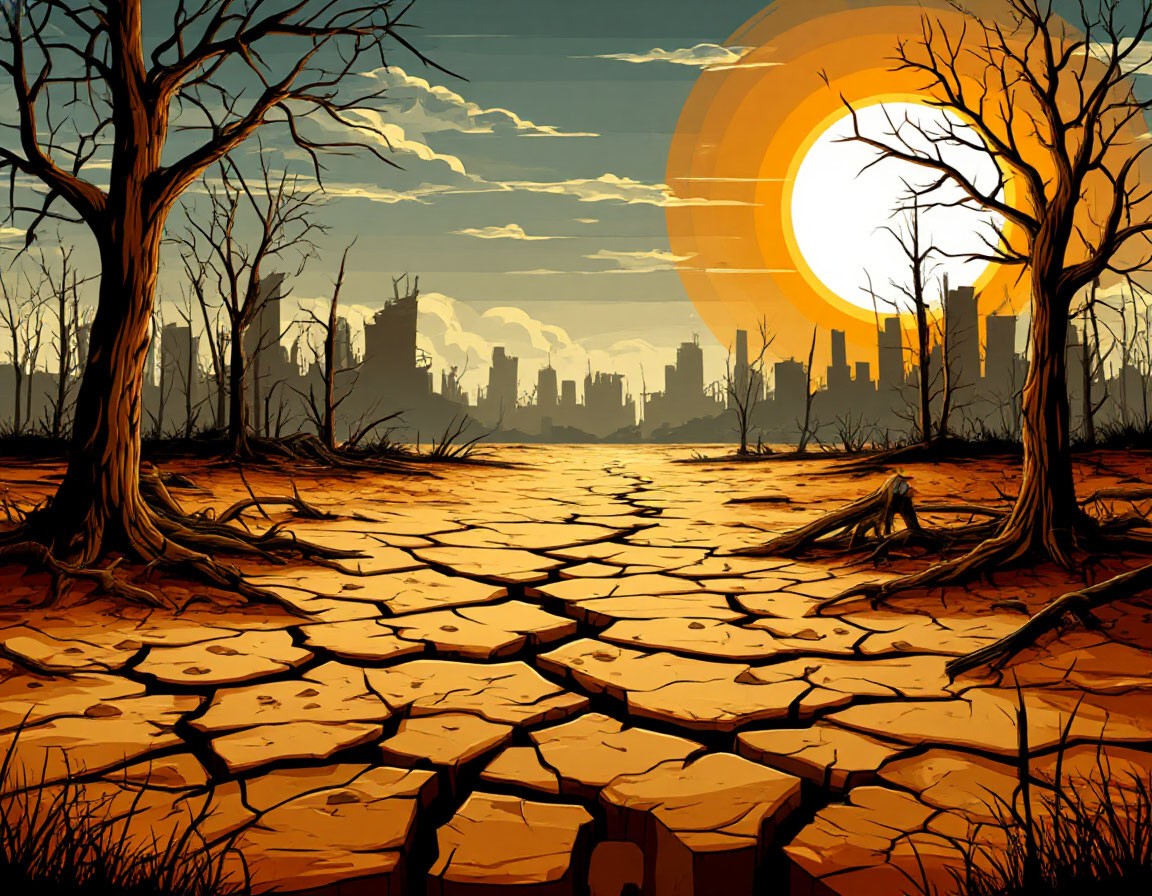What If Every Drop of Earth's Water Vanished Overnight?
Imagine waking up to a faucet that won’t drip and stepping outside to find no rivers, no dew, no seas at all. The oceans, seas, and rivers would have disappeared. This would be physically impossible—water cannot simply vanish into the air. But let’s imagine that it did. What would happen to our planet and to every living thing on it? Prepare for a journey into a world without a single drop of water.

In This Article:
The World Reveals Its Bare Skeleton
Everything would begin with billions of tons of water simply ceasing to exist. Ships in the oceans would plunge to the bottoms of sea basins, some from several kilometers up. Submarines would end up on dry land, stranded like stranded whales. Planes would start to fall. With all atmospheric humidity gone, air pressure would plummet. The air would become much thinner, and wings would stop generating lift. The floors of the former seas would reveal underwater mountain ranges and canyons dozens of kilometers deep, exposing sunken cities and ships from all eras. The Mariana Trench would become the planet’s deepest abyss—about 11 kilometers down.

The Climate Goes Mad
Without water vapor, one of the key greenhouse gases, the heat balance would unravel. Daytime temperatures could climb to 60–70°C, while at night they could plummet to −40°C or lower because there would be nothing to trap heat. The sky would be crystal clear—no clouds, no fog, just endless blue by day and a starry canopy by night. The lack of clouds and humidity would change how the planet stores and loses heat, making the climate wildly unstable.

Life on Pause: Plants Die, Animals Suffer
Plants would begin dying almost instantly. Without water they cannot photosynthesize—turning carbon dioxide and sunlight into oxygen and glucose. Leaves would wilt within an hour, and stems would snap within days. Trees would cling to life a little longer thanks to stored water in their trunks, but they would dry out within a day or two. Animals would die at different rates: small mice, birds, and insects within hours; larger mammals within a day or two. Camels and other desert dwellers would survive the longest, but they would perish too. Humans would die within 3–4 days without water. In this scenario, people would faint from heat during the day and from cold at night within hours. As vegetation dies, the atmosphere would start accumulating CO2 since plants no longer remove it. Dead matter would decompose, but without moisture, decomposition would be slow and bodies would become mummies. The surface would turn into a desert of wind-blown dust and ash. Oxygen levels would drop as some chemical processes that used water halt and others shift, while CO2 would rise but no longer trap heat effectively without water vapor.

Could Earth Rebound If Water Returned?
Imagine a fantastical scenario: after a year, all water suddenly returns. Would the planet recover? Most likely not. The oceans would refill basins, but life in them would be gone—the fish, plankton, and algae would be dead. The water would be crystal-clear but lifeless. On land, nothing would regrow by itself. Seeds would not germinate for a long time without moisture; the soil would be a lifeless dust, and ecosystems would have to be rebuilt from scratch—as if starting on another planet. Fortunately, water cannot disappear. It can change state or move—evaporating from surfaces and precipitating elsewhere. It cannot vanish without a trace. Even a catastrophe that ejects all water into space would take thousands of years to play out, giving humanity time to adapt or respond. So sleep easy: tomorrow the tap will still flow, and the oceans will remain in place for billions of years. Every drop is precious on our blue planet.


